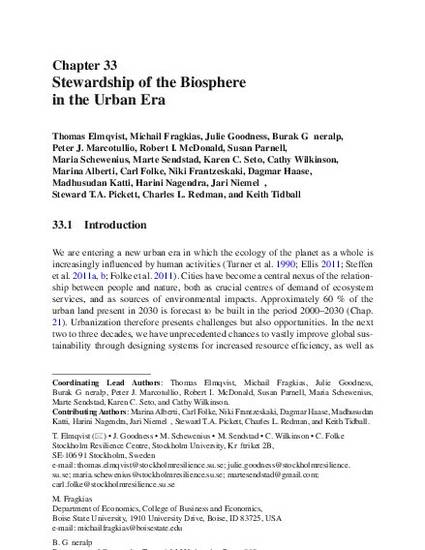
We are entering a new urban era in which the ecology of the planet as a whole is increasingly influenced by human activities (Ellis 2011; Steffen et al. 2011a, b; Folke et al. 2011). Cities have become a central nexus of the relationship between people and nature, both as crucial centres of demand of ecosystem services, and as sources of environmental impacts. Approximately 60 % of the urban land present in 2030 is forecast to be built in the period 2000–2030 (Chap. 21). Urbanization therefore presents challenges but also opportunities. In the next two to three decades, we have unprecedented chances to vastly improve global sustainability through designing systems for increased resource efficiency, as well as through exploring how cities can be responsible stewards of biodiversity and ecosystem services, both within and beyond city boundaries.
For complete list of authors, please see article.
This document was originally published by Springer Netherlands in Urbanization, Biodiversity and Ecosystem Services: Challenges and Opportunities. This work is provided under a Creative Commons Attribution-NonCommercial License. Details regarding the use of this work can be found at: http://creativecommons.org/licenses/by-nc/3.0/. DOI: 10.1007/978-94-007-7088-1_33.
Available at: http://works.bepress.com/michail_fragkias/11/
